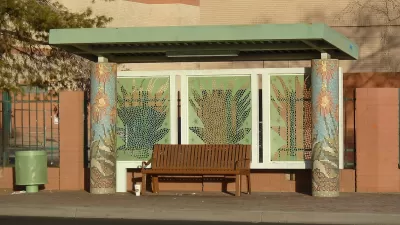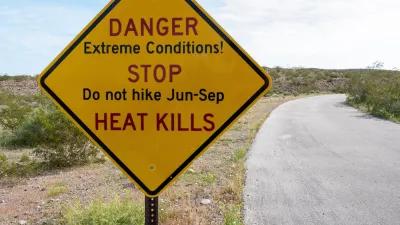A higher number of high heat days correlates with more cardiovascular deaths, according to new research.

According to an article by Maryn McKenna in Wired, new research suggests that “cardiovascular deaths linked to extreme heat could triple to almost 5,500 extra deaths per year, if nothing is done to curb the greenhouse gas emissions that are driving climate change and extreme heat events” by the middle of the century. Even with some emissions reductions, the study predicts a doubling of cardiovascular deaths.
“Thanks to the combined influences of age, genetic vulnerability, geography, and the heat-trapping aspects of urban development, the investigators predict that older adults will be at higher risk, and Black adults will be at higher risk than any other group,” the study notes.
“The projections confirm what other researchers have been finding: a reliable relationship between climate change and harm to human health, not just in the US but worldwide.” Meanwhile, a vast web of policies and historical decisions put low-income households and communities of color at higher risk for being impacted by extreme weather and pollution.
Cities are increasingly recognizing the dangers of extreme heat and taking steps to identify the areas at highest risk and launch interventions such as increasing green space, providing shade, and installing reflective surfaces to mitigate the urban heat island effect.
FULL STORY: As Extreme Heat Increases, Heart Attacks Will Rise

Maui's Vacation Rental Debate Turns Ugly
Verbal attacks, misinformation campaigns and fistfights plague a high-stakes debate to convert thousands of vacation rentals into long-term housing.

Planetizen Federal Action Tracker
A weekly monitor of how Trump’s orders and actions are impacting planners and planning in America.

In Urban Planning, AI Prompting Could be the New Design Thinking
Creativity has long been key to great urban design. What if we see AI as our new creative partner?

San Francisco Mayor Backtracks on Homelessness Goal
Mayor Dan Lurie ran on a promise to build 1,500 additional shelter beds in the city, complete with supportive services. Now, his office says they are “shifting strategy” to focus on prevention and mental health treatment.

How Trump's HUD Budget Proposal Would Harm Homelessness Response
Experts say the change to the HUD budget would make it more difficult to identify people who are homeless and connect them with services, and to prevent homelessness.

The Vast Potential of the Right-of-Way
One writer argues that the space between two building faces is the most important element of the built environment.
Urban Design for Planners 1: Software Tools
This six-course series explores essential urban design concepts using open source software and equips planners with the tools they need to participate fully in the urban design process.
Planning for Universal Design
Learn the tools for implementing Universal Design in planning regulations.
Gallatin County Department of Planning & Community Development
Heyer Gruel & Associates PA
JM Goldson LLC
Mpact (founded as Rail~Volution)
City of Camden Redevelopment Agency
City of Astoria
Jefferson Parish Government
Camden Redevelopment Agency
City of Claremont





























